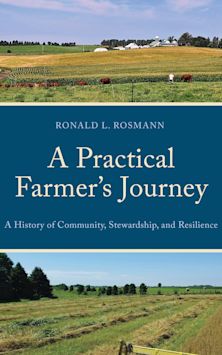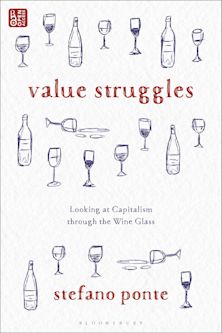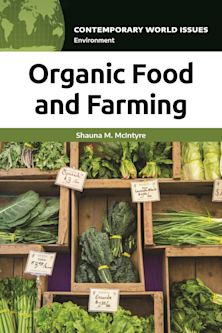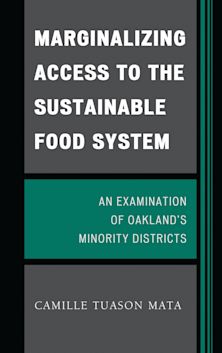Earth to Tables Legacies
Multimedia Food Conversations across Generations and Cultures
- Textbook
Earth to Tables Legacies
Multimedia Food Conversations across Generations and Cultures
- Textbook
Description
Climate crises, a global pandemic, farmer protests, diet-related diseases-all of these are telling us that the industrial food system threatens our health and the health of the planet and deepens systemic inequities, racism, and poverty. Using food as an entry to key issues-such as Indigenous-settler relations and anti-racism in the food movement- Earth to Tables Legacies: Multimedia Food Conversations across Generations and Cultures tells the stories of food activists from the Americas-young and old, rural and urban, Indigenous and settler-who share a vision for food justice and food sovereignty, from earth to tables.
This visually stunning, full-color multimedia book generates rich conversations about food sovereignty through eleven photo essays and links to ten videos. Commentaries on each essay broaden the conversations with the experiences and perspectives of eighteen scholars and activists-both Indigenous and settler-from Mexico, the United States, and Canada. Facilitator's guides offer creative ways to engage students and activists in critical discussions about these issues with links to other resources-text-based and visual, print and online.
Visit the Earth to Tables website here.
Table of Contents
Introduction
Naming the Moment
The Moment Exposes an Unsustainable and Unjust Food System
The Moment Offers a Portal to Food Justice
The Moment for Online Multimedia Education
Naming the Project: Earth to Tables Legacies
Naming Our Process: Cocreating with All Our Relations
Naming the Chapters: An Overview and Synthesis
PART I: Greetings and Gratitude
Chapter 1: The Thanksgiving Address: Greetings and Thanks
Introduction to Thanksgiving Address
Continuing the Conversation with Molly Anderson
PART II: Setting the Table
Chapter 2: Navigating Dynamic Tensions on Common Waters: The Broader Context of Our Legacies Conversations
Knowledge Tensions: Eurocentric versus Indigenous Knowledges
Earth or Food Tensions: Corporate Food Regime versus Food Sovereignty Movement
Justice or Equity Tensions: Intersectional Identities and Power
Political Tensions: Capitalism, Colonization, and Reconciliation
Chapter 3: Pollinating Relationships: Our Collaborative Methodology
Chapter 4: Digging In: Facilitating Dialogue and Action
Walking the Talk: Introduction to Facilitator Guides
PART III: Storytellers
Chapter 5: Stories of the Storytellers
Meet the Storytellers
Meet the Production Team
Our Food Icons
Our Migration Stories
PART IV: Conversations
Chapter 6: Ways of Knowing
Photo Essay: Haudenosaunee Gifts: Contributions to Our Past and Common Future
Photo Essay: Language and Food: A Worldview in Verbs
Continuing the Conversation with Dr. Lorna Wanosts'a7 Williams
Photo Essay: Medicinal Plants in the P'urépecha Cosmovision
Continuing the Conversation with Amber Adams
Photo Essay: Mutual Nurturing: Reweaving Community with Our Elders
Continuing the Conversation with Monique Mojica
Chapter 7: Earth
Photo Essay: Mother's Milk: The Original Food
Continuing the Conversation with Penny Van Esterik
Continuing the Conversation with Laura Solis
Video: The Soil Is Alive
Continuing the Conversation with Gilberto Aboites
Video: The Alchemy of Agroecology
Continuing the Conversation with Harriet Friedmann
Photo Essay: The Animal Food Cycle: We Feed Them, and They Feed Us
Continuing the Conversation with Fred Metallic
Chapter 8: Justice
Photo Essay: Promoting Organic Agriculture in Mexico: From Urban Gardens to Multinational Companies
Continuing the Conversation with Samantha Trumbull
Video: Why Farmers Markets?
Continuing the Conversation with María Blas, Fulvio Gioanetto, Valiana Aguilar, and Ángel Kú
Continuing the Conversation with Anan Lololi and Selam Teclu
Photo Essay: Food Justice and Urban Agriculture in Action
Video: Black Creek Community Farm: Healing the Community
Continuing the Conversation with Karen Washington
Video: Who Will Feed Us? The Farm Labour Crisis Meets the Climate Crisis
Continuing the Conversation with Gilberto Aboites
Chapter 9: Tables
Photo Essay: From the Mush Hole to the Everlasting Tree School: Colonial Food Legacies among the Haudenosaunee
Continuing the Conversation with Lorraine Johnson
Continuing the Conversation with Fulvio Gioanetto
Photo Essay: La Comida: The Core of Food Sovereignty
Continuing the Conversation with Claudia Serrato
Haudenosaunee Primer: 3 videos
Video: Getting to Know Us
Continuing the Conversation with Patty Loew
Video: Living with Your Mother
Continuing the Conversation with Tim LeDuc
Video: Life in the Longhouse
Continuing the Conversation with Kiera (Kaia'tanó:ron) Brant-Birioukov
Photo Essay: Cooking and Eating Together: From the Kitchen Table to the Community Meal
Continuing the Conversation with Joshna Maharaj
Acknowledgments: Greetings and Gratitude
Bibliography
Product details
| Published | Aug 16 2022 |
|---|---|
| Format | Ebook (Epub & Mobi) |
| Edition | 1st |
| Extent | 256 |
| ISBN | 9781538123508 |
| Imprint | Rowman & Littlefield Publishers |
| Illustrations | 243 colour photos; 21 textboxes |
| Publisher | Bloomsbury Publishing |
Reviews

ONLINE RESOURCES
Bloomsbury Collections
This book is available on Bloomsbury Collections where your library has access.


































